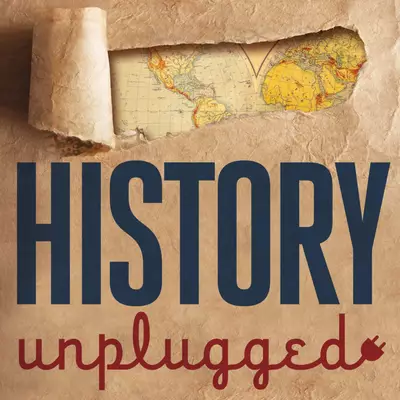Listen on Your Favorite App
Britain Controlled the Globe by Farming Out Colonial Governance to the East Indian Company and other Corporations
August 15, 2023
00:00
01:13:31
Listen on Your Favorite App
How did Britain – an island nation the same size as Oregon – manage to control most of the world through its colonial empires? The answer is that it didn’t, at least not directly. Britain farmed out control to its imperial holdings by granting land rights to joint-stock corporations. And many of them, like the East India Company, were sovereign nations in all but name.
Across four centuries, from Ireland to India, the Americas to Africa and Australia, British colonialism was above all the business of corporations. Corporations conceived, promoted, financed, and governed overseas expansion, making claims over territory and peoples while ensuring that British and colonial society were invested, quite literally, in their ventures. Colonial companies were also relentlessly controversial, frequently in debt, and prone to failure. The corporation was well-suited to overseas expansion not because it was an inevitable juggernaut but because, like empire itself, it was an elusive contradiction: public and private; person and society; subordinate and autonomous; centralized and diffuse; immortal and precarious; national and cosmopolitan—a legal fiction with very real power.
Breaking from traditional histories in which corporations take a supporting role by doing the dirty work of sovereign states in exchange for commercial monopolies, today’s guest, Philip Stern (author of Empire, Incorporated) argues that corporations took the lead in global expansion and administration. Whether in sixteenth-century Ireland and North America or the Falklands in the early 1980s, corporations were key players. And venture colonialism did not cease with the end of empire. Its legacies continue to raise questions about corporate power that are just as relevant today as they were 400 years ago.
Across four centuries, from Ireland to India, the Americas to Africa and Australia, British colonialism was above all the business of corporations. Corporations conceived, promoted, financed, and governed overseas expansion, making claims over territory and peoples while ensuring that British and colonial society were invested, quite literally, in their ventures. Colonial companies were also relentlessly controversial, frequently in debt, and prone to failure. The corporation was well-suited to overseas expansion not because it was an inevitable juggernaut but because, like empire itself, it was an elusive contradiction: public and private; person and society; subordinate and autonomous; centralized and diffuse; immortal and precarious; national and cosmopolitan—a legal fiction with very real power.
Breaking from traditional histories in which corporations take a supporting role by doing the dirty work of sovereign states in exchange for commercial monopolies, today’s guest, Philip Stern (author of Empire, Incorporated) argues that corporations took the lead in global expansion and administration. Whether in sixteenth-century Ireland and North America or the Falklands in the early 1980s, corporations were key players. And venture colonialism did not cease with the end of empire. Its legacies continue to raise questions about corporate power that are just as relevant today as they were 400 years ago.
See omnystudio.com/listener for privacy information.
More Episodes
See all episodes
Meet Your Host

Scott Rank is the host of the History Unplugged Podcast and a PhD in history who specialized in the Ottoman Empire and modern Turkey. Before going down the academic route he worked as a journalist in Istanbul. He has written 12 history books on topics ranging from lost Bronze Age civilizations to the Age of Discovery. Some of his books include The Age of Illumination: Science, Technology, and Reason in the Middle Ages and History’s 9 Most Insane Rulers.. Learn more about him by going to scottrankphd.com.
